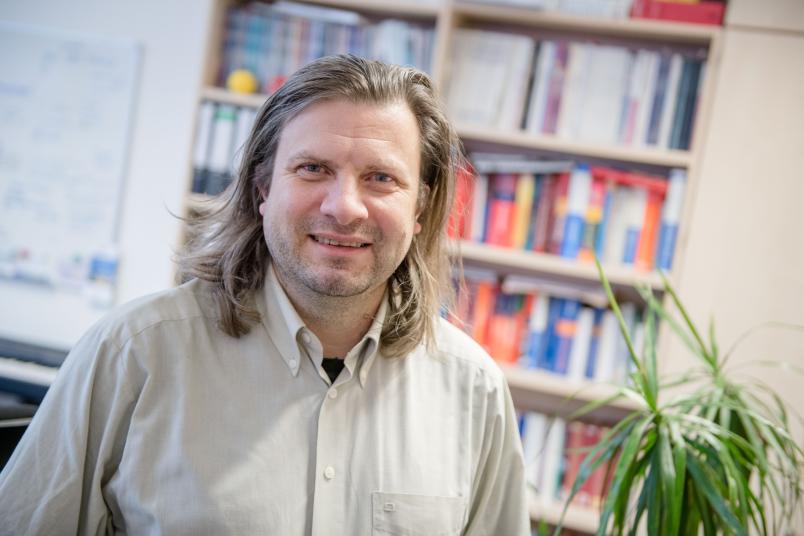
Interview
The mission is: new discoveries
Alfred Ludwig has renamed his Chair. He tells us why in our interview.
Materials are going to have a strong impact on future developments, including the success of the energy revolution. Material engineers from Bochum and their methods have been much discussed in the recent months. Professor Alfred Ludwig, Executive Director at the Center for Interface-Dominated High Performance Materials at RUB, attempts a prognosis.
Your Chair has been recently renamed “Materials Discovery and Interfaces”. This implies that you expect discoveries to be made in your research group – what is it that renders you so confident?
We have made several discoveries in the recent years and we have also been optimising known materials. The new name reflects that we now consider the discovery of new materials our core mission. We have been developing the tools necessary for this purpose for 16 years. Now, we want to utilise them, while at the same time accelerating the process using material informatics.
Which material properties are currently in great demand?
I believe that materials for energy systems of the future are badly needed, such as novel catalysts for fuel cells or novel permanent magnets. And we also need new multi-functional materials for the ongoing mega-trend of miniaturising and function integration, for example shape memory alloys.

Inverse design will be possible.
Which are the main challenges that material science will be facing in the upcoming years?
Mastering the use of material informatics, up to and including autonomous experimentation.
Looking ten years into the future of material science, the question is: how will materials be developed?
Inverse design will be possible; that means the required material properties will be defined first and the respective material may be directly manufactured to meet those requirements. To this end, we must now compile the database using automated experiments and strengthen the collaboration between material scientists conducing experimental research and those using computational methods. I believe Bochum offers ideal conditions to do precisely that.